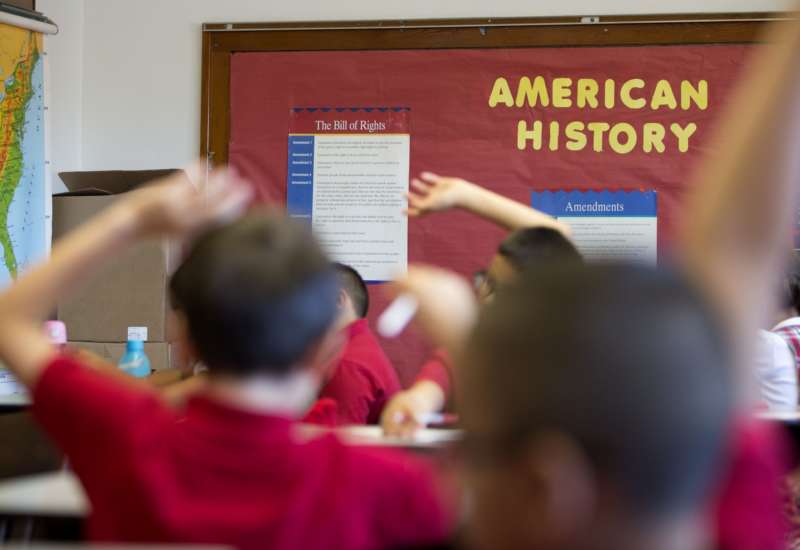An elementary school in an Indiana town is allowing parents to opt their children out of lessons relating to Black History Month.
According to a letter from school counselor Benjamin White at Sprunica Elementary School in Nineveh, Indiana, parents are encouraged to allow their students to receive “lessons related to equity, caring, and understanding differences,” noting that studies have shown students with a “greater understanding of diversity in the classroom and outside world will demonstrate improved learning outcomes.”
However, the letter also provides a form at the bottom for parents if they don’t want their children taking part.
A public school in Indiana is giving parents the option to opt their children out of learning about Black History Month. pic.twitter.com/L1QxmH9lRm
— Kolleen (@littlewhitty) February 16, 2022
After criticism on social media about the letter, the Brown County School District issued a press release responding to concerns.
“We are gathering more information on the matter. In the meantime, know that we support teaching about the facts in our history including historical injustices,” Brown County Schools Superintendent Emily Tracy said.
The district also posted a Facebook message regarding the letter.
“Our district supports teaching about the facts in our history including historical injustices,” the post read. “We are and will continue to be committed to having compassion for all and supporting an education community that will allow all students, staff, families and community members the opportunity to feel welcome.”
The controversy over Brown County Schools is happening at the same time as another statewide controversy is unfolding. Right now, legislation entitled House Bill 1134, which would put strict limits on what teachers could teach, is making its way through the Indiana state legislature.
The bill has been watered down somewhat, as it originally required teachers to provide a full year of their detailed lesson plans to parents, something that many educators said would lead to them leaving the state or the profession. But even with those changes made, restrictions remain on what teachers could say or discuss in the classroom — including expressing an opinion on topics like fascism or Nazism, or teaching lessons that could cause “discomfort” for students on topics of race or gender.
“Instead of stifling tough conversations in the classroom, we should trust educators as professionals to provide students with an education that enables them to learn from the mistakes of our past and to help us all to create a better future,” said Keith Gambill, president of the Indiana State Teachers Association. “Even in improved form, HB 1134 still feeds divisiveness and the politicization of our public schools.”


